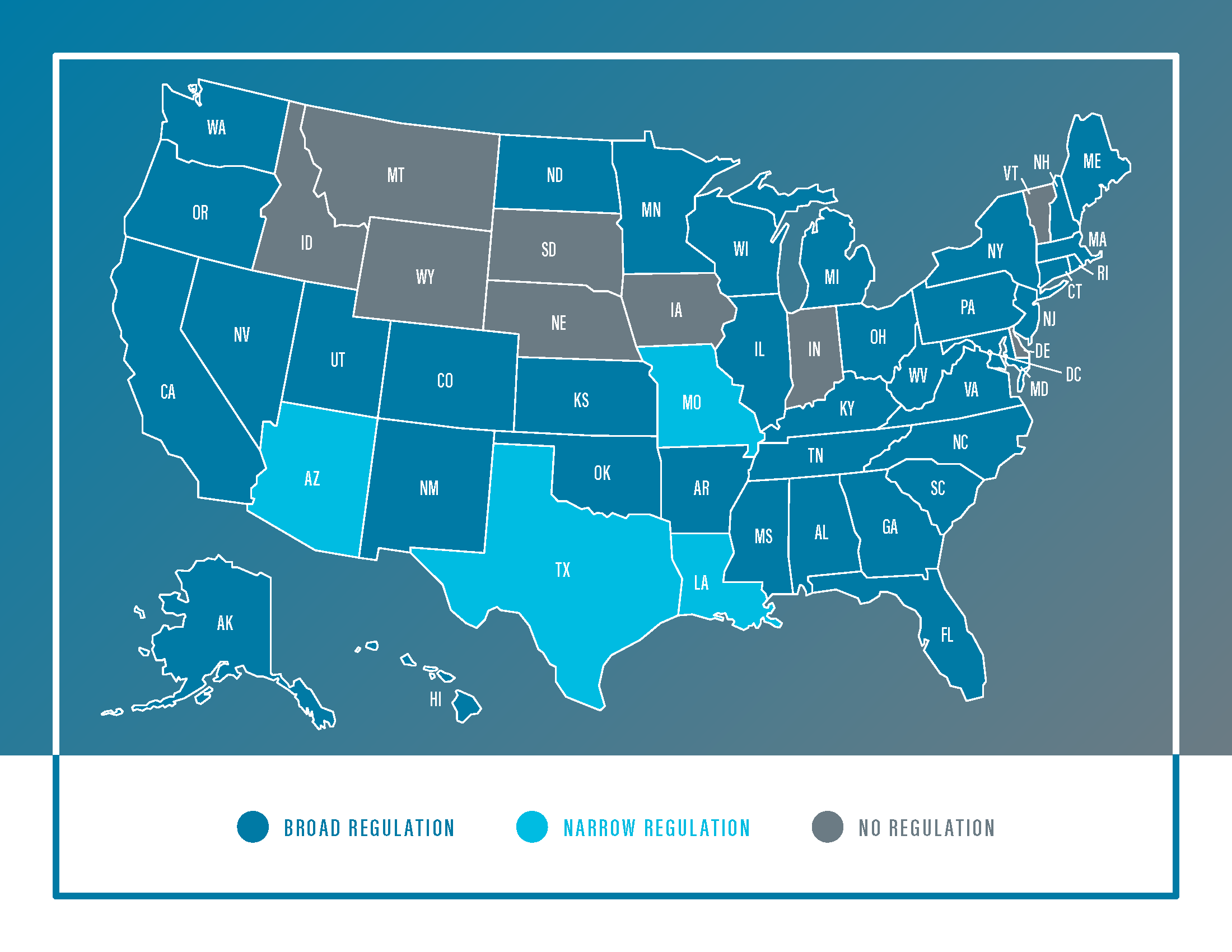You’ve decided to start your own non-profit charity to raise money for a cause you are passionate about. This is great, but there is a vital step you must first take before you can send out your first ask and/or accept the first dollar. You must register to fundraise.
Specifically, a charity must register to fundraise with its state in order to solicit charitable contributions if state law requires it and others where it solicits funds. Currently, there are 39 states and the District of Columbia that have such requirements.
Related Reading: The Long Arm of Charitable Solicitation Law
As each state has its own registration requirements, it is important to research the filing requirements (which change frequently), keep a list of the states in which your organization is registering and how far along in the registration process your organization is, and ensure registration deadlines are met.
Every year thereafter, your organization is required to renew its registration with each state in which it is registered and continues to solicit charitable contributions. Most states require a completed renewal form and payment of a fee.
Fundraising Registration Renewal
Similar to the initial registration, you will need :
- a copy of your organization’s most recently filed Form 990,
- your most recent audited financial statements (if applicable)
- and in some states a notarized signature on the renewal form.
A few states allow renewals through a website.
Each state has a different deadline to renew, and many states will grant an extension to file if requested in writing by the deadline. It is very important to keep a calendar of the deadlines to renew in each state late fees add up very quickly!
Fundraising Registration Requirements
Registering to fundraise in most states requires the following:
- A completed registration form and payment of a fee
- The organization’s articles of incorporation and by-laws
- A list of the organization’s board of directors and officers
- A copy of the determination letter that the organization received from the IRS
- The methods the organization intends to use to solicit charitable contributions
- A copy of the organization’s most recently filed Form 990
Some states also require your organization’s most recent audited financial statements if the revenues exceed a certain threshold, and others require a notarized signature on registration forms.
A few states also require your organization to have a registered agent with a valid mailing address within the state in order to register to fundraise.
Your organization will receive a letter from each state that approves the registration application. If the application is lacking in some way, the state will send a letter requesting additional information or documentation.
Some states require a registered organization to include a specific disclosure regarding its registration with all solicitations for charitable contributions. Smaller organizations without dedicated staff typically outsource registration and renewal.
Overall, remember that your organization needs to register in a state if it solicits charitable contributions in that state. Whether you ask for money by email, over the phone, by mail, in person, through a website or through a fundraising event, these are all considered soliciting charitable contributions.
If you’re unsure if your organization should register with a particular state, reach out to Caritas Registration, LLC at info@caritasregistration.com or by calling (480) 428-3392 today and we’ll help you determine what steps, if any, you need to take to get into compliance.
Other Important Notes About Fundraising Registration/Renewal
- The states that do not require a charity to register to solicit are Nevada, Idaho, Montana, Wyoming, South Dakota, Nebraska, Iowa, Indiana, Texas (unless raising funds for veterans or public safety), Vermont, and Arizona (unless raising funds for veterans).
- Additionally, none of the U.S. territories have such a law.
- States that require a registered agent with a local mailing address within their state include Michigan and North Dakota. The District of Columbia also requires it.
- Some states allow the Secretary of State or a key officer to be named.
- Some require renewal bi-annually. These include Georgia and the District of Columbia.
- Missouri does not require renewal at all. States that allow an organization to renew online include AL, AK, CA, CO, FL, GA, HI, ME, MS, NJ, NM, NY, OH, RI, SC, TN, UT, WA, WI.

